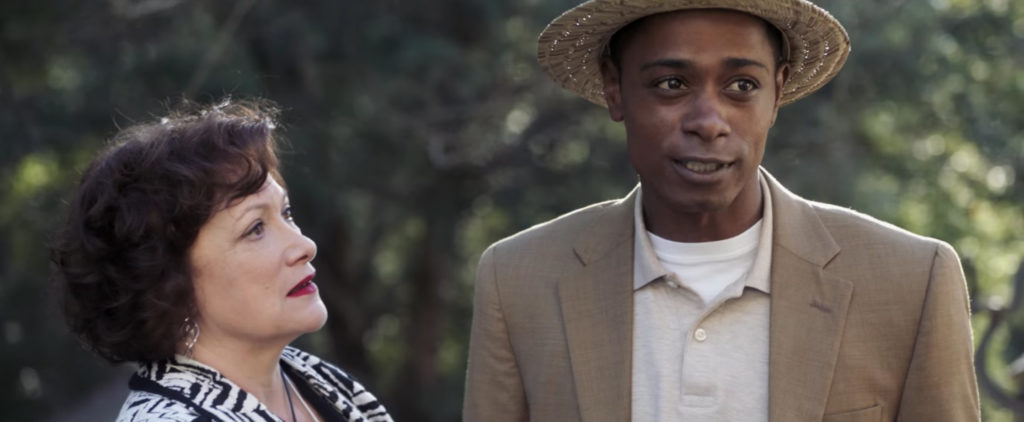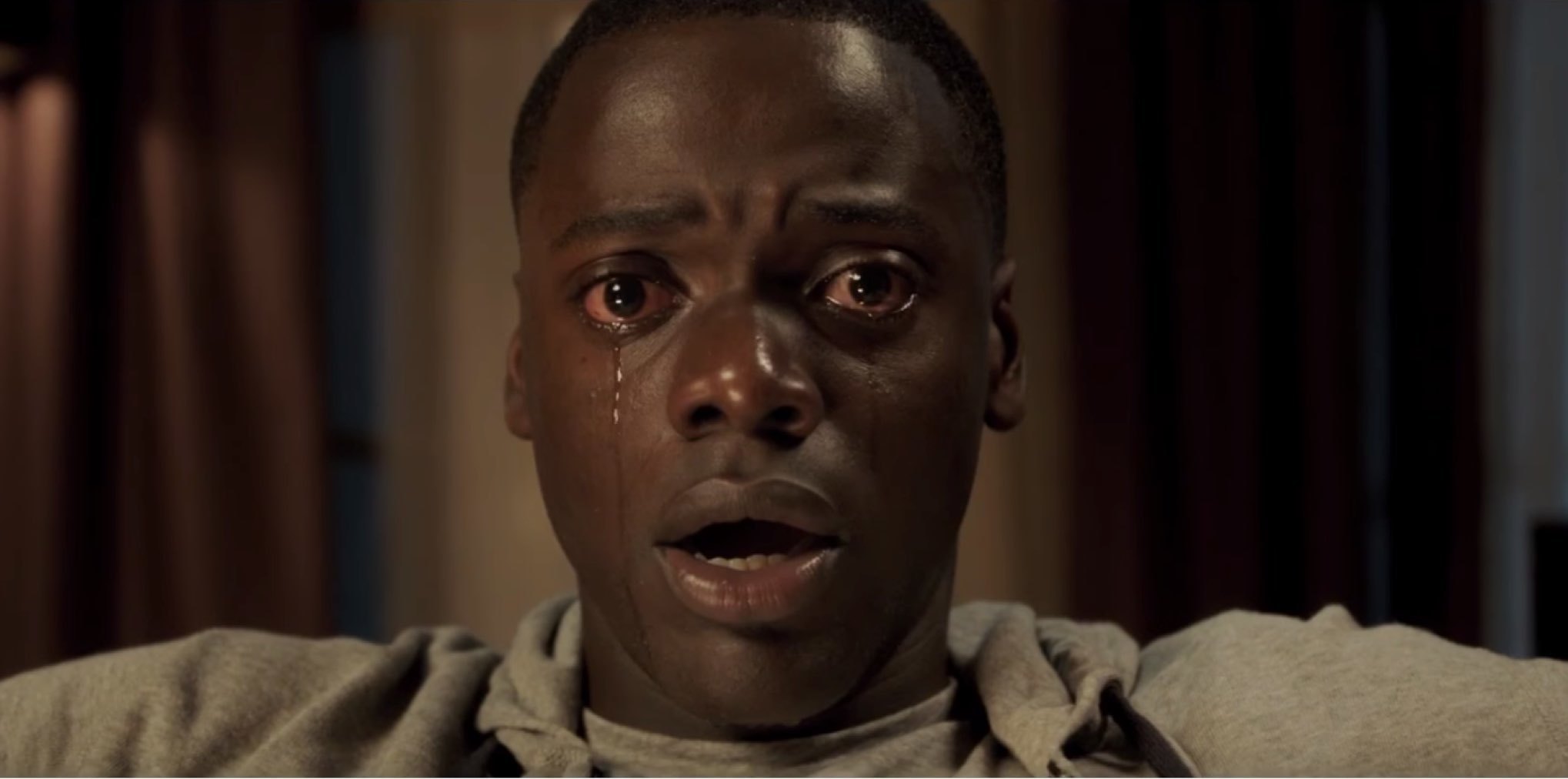Get Out is an instant classic that perfectly matches horror, satire and social issues to shine a light on aspects of racism rarely discussed.
How do you unpack what is basically a perfect movie?
Certainly, to call a movie “perfect” is often an experiment in hyperbole, but what first-time director Jordan Peele (of Key and Peele fame) manages to pull off with Get Out is a perfect reflection of the state of race in America in 2017, and he manages it to do it with a mixture of horror and satire that never feels sanctimonious or accusatory.
This is an achievement in and of itself, largely because for some, even the very discussion of race becomes so uncomfortable that some (read: white people) refuse to even engage. The reason for such disengagement comes from the notion that racism is based solely in hatred, and as such, it makes it easy for a well-meaning white person to say, “I don’t hate blacks; therefore, I cannot be racist.”
It is this notion that Peele directly attacks with laser precision, because there is nothing in Get Out that is about racial hatred, in fact, it’s quite the opposite, as blackness here is something coveted instead of rejected, presenting a side of racism that is almost never discussed, setting the stage for something truly unique and special.
Chris (an excellent Daniel Kaluuya) is a black photographer with a white girlfriend (Allison Williams), something that in 2017 barely registers in the way it would have even 20 years ago. That said, Chris feels a bit of anxiety not just from going to meet Rose’s parents for the first time, but also from learning that they don’t know he’s black.
Rose attempts to assuage Chris’ fears by telling him “if my father could vote for Obama for a third term, he would,” something that on the surface is meant to be reassuring, but feels along the lines of the old “I have black friends too” canard used so often by people who think being “colorblind” makes them somehow immune to racism.
Some may see Get Out as a negative critique of interracial relationships, and to a certain extent, it is, but the way in which Peele sells that critique is, dare I say it, a more evolved discussion than the one Spike Lee had in Jungle Fever, because it’s not about placing a stigma on such relationships, but rather examining one’s place within them.
While Rose’s desire is presented as, yes, colorblind, the reality is more sinister for the purposes of a horror film, but also speaks to that idea of blackness as a possession, something to covet, and it falls in line with just one more aspect of race that people are uncomfortable about discussing, but absolutely should.
Get Out is quite possibly the greatest meditation on film of what it means to be black in America since Mookie threw the trash can through Sal’s window in ‘Do the Right Thing’.
Once we meet Rose’s parents Missy (Catherine Keener, more on her later) and Dean (Bradley Whitford), the awkward overaccommodation many people of color face from whites who want to make them fit in by using colloquialisms and mannerisms that border on mockery surface almost immediately. It’s clear they mean well, at least on the surface, but Peele uses this all-too-familiar feeling to allow the dread to creep in, setting the stage for the horror to come.
The most successful horror films play on simple fears and turn them into larger monsters, real or metaphorical, and Get Out excels at this.
It’s not blood or gore that makes horror work, it’s the exploitation of the worst-case scenario that truly rips at the subconscious, and what Peele does here is take what’s commonly known today as microaggressions and blow them up in a way that mirrors the concept of the ax-wielding maniac, even if in this case, that maniac is white supremacy.
Unlike the stereotypical image of the neo-Nazi or Klansman, who focus on a whites-only reality, white supremacy is more about control than extermination, and the hook in Get Out is not the destruction of black men and women, but rather the control.
Peele’s critique of modern-day white power structures accurately mirror master-slave relations of an Antebellum era, with images of seemingly docile black men and women, particularly those in the employ of Missy and Dean, who are presented, not as slaves, but willing indentured servants, happy with their station in life.
Where it might be easy to use those workers as avatars for slavery, Peele instead gives them a pod person or zombie-like quality, choosing to keep the film on a path of horror than bottled up sympathy, and that’s really a solid choice, because Get Out is not just an examination of racism alone, it is a true horror film, and the only way to make this successful is to have total buy-in from your actors, both black and white.

Photo: Universal
For this, it’s easy to say that the real MVP here is Catherine Keener, who absolutely transcends any “evil white woman” trope. As Missy, a psychiatrist with a knack for hypnotism, she embraces a level of power that places her in the upper echelon of horror movie antagonists. Her performance is far more nuanced than we’re used to seeing in your average horror film, as she deftly conveys a both caring and insidious presence.
One of the strongest scenes of the film involves a late-night conversation between Missy and Chris, where she coaxes a closely guarded secret from Chris concerning the death of his mother. While Peele certainly wrote the scene well, it’s that level of empathy from Keener and the release of emotion from Kaluuya that takes what’s written and delivers a rare poignancy that masks the subterfuge of Missy’s true motives. Without Keener, it’s hard to see certain parts of Get Out succeed, making her last moment on screen a work of true catharsis.
Even though Get Out plays it mostly straight, Peele has no problem letting his comedic roots show, and how he uses comedy with a light touch, gives the film needed levity in the form of Chris’ best friend, Rod (Lil Rel Howery) who is mostly used as comic relief, without being turned into a caricature.
As Get Out ramps up into a full-blown horror movie, Peele delivers a climax that turns into a roller coaster of true catharsis, so much so that the joy felt from the results almost feel like a guilty pleasure. While I don’t want to spoil any of this, what happens in the film’s final moments delivers the type of release expected but not received from a film like Nate Parker’s overblown The Birth of a Nation.
In that, Get Out is quite possibly the greatest meditation on film of what it means to be black in America since Mookie threw the trash can through Sal’s window in Do the Right Thing. Jordan Peele masterfully challenges audiences to face the notion that we cannot be truly equal until people of color, particularly black people are looked at more as people than just one more thing white people possess.
Hashim R. Hathaway (Shimbo) is the host of the Never Daunted Radio Network, and proud father to NeverDaunted.Net. You can reach him on Twitter @NeverDauntedNet

